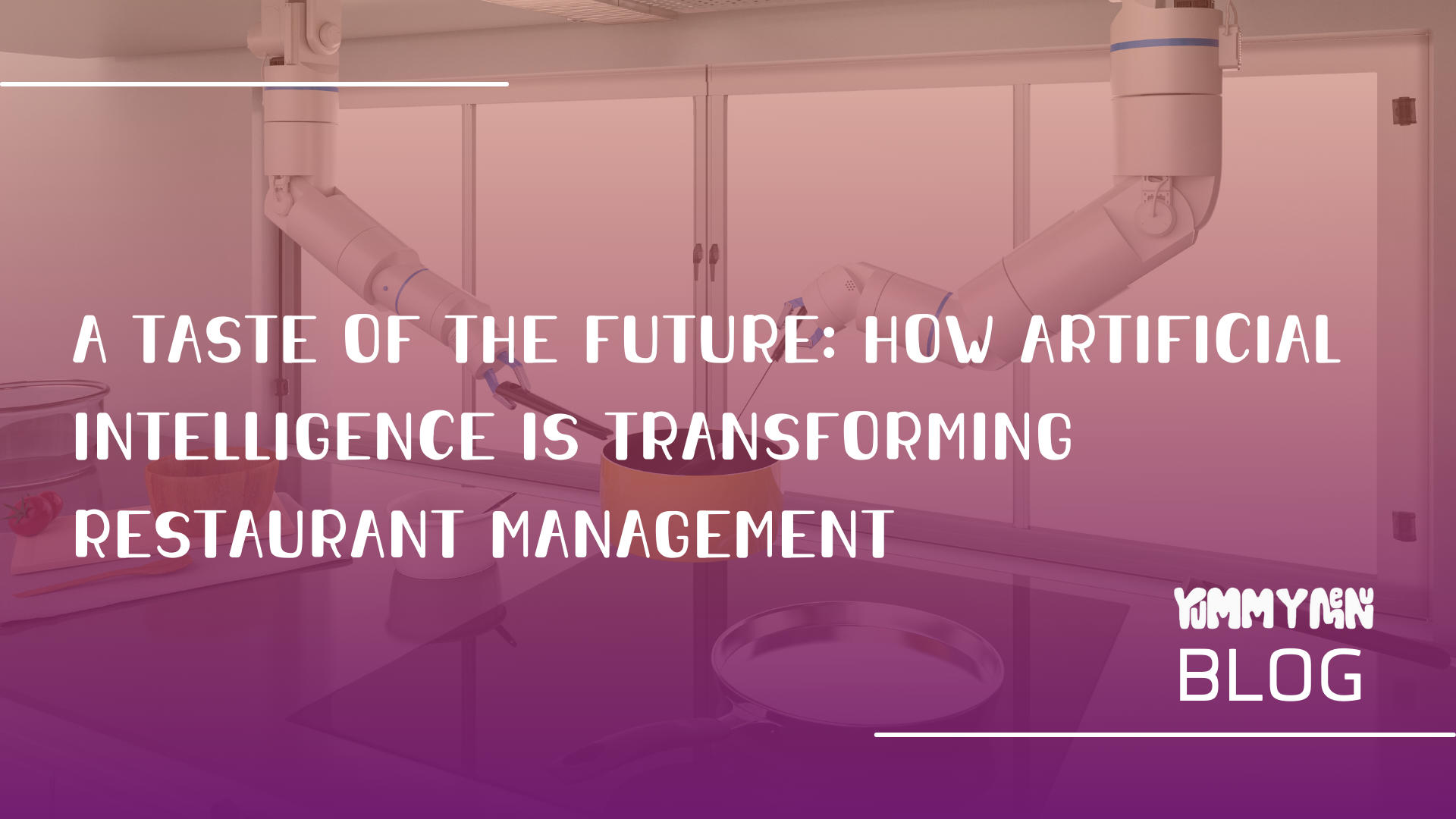
A Taste of the Future: How Artificial Intelligence Is Transforming Restaurant Management
The restaurant industry is undergoing a technological revolution, and at the forefront of this transformation is artificial intelligence (AI). From streamlining operations to enhancing customer experiences, AI has found its way into various aspects of restaurant management. In this blog post, we'll explore how AI is reshaping restaurant management, improving efficiency, and elevating the dining experience.
-
Enhancing Customer Service:
AI-powered chatbots and virtual assistants are becoming invaluable tools for restaurant management. They can handle customer inquiries, take reservations, and provide information about menu options, hours of operation, and special promotions. This not only frees up staff for more personalized interactions but also ensures that customers receive prompt and accurate responses, leading to improved customer satisfaction. -
Personalized Recommendations:
AI can analyze customer data, such as order history and preferences, to provide personalized menu recommendations. This level of personalization not only enhances the dining experience but also increases the chances of upselling and cross-selling, boosting revenue. -
Inventory Management:
AI algorithms can monitor inventory levels in real-time, helping restaurants avoid shortages or overstocking. Predictive analytics can also forecast demand, optimizing purchasing decisions and reducing food waste. This not only saves money but also contributes to sustainability. -
Menu Optimization:
AI can analyze customer feedback and sales data to identify the most popular and profitable menu items. Restaurants can use this information to adjust menus, highlight bestsellers, and introduce new dishes that align with customer preferences. -
Kitchen Automation:
AI-driven kitchen automation systems can improve efficiency and consistency in food preparation. These systems can monitor cooking times, temperatures, and ingredient quantities, reducing errors and ensuring that dishes meet the restaurant's quality standards. -
Labor Management:
AI-powered scheduling tools can optimize staff shifts based on historical data and projected demand. This ensures that the right number of employees are scheduled during peak hours, reducing labor costs while maintaining excellent service. -
Customer Feedback Analysis:
AI can analyze customer reviews and feedback from various platforms to identify trends and areas for improvement. Restaurants can then make data-driven decisions to enhance the overall dining experience. -
Reservation Management:
AI-driven reservation systems can automatically manage table bookings, optimize seating arrangements, and send reminders to diners. This eliminates the risk of overbooking and ensures a smooth dining experience for customers. -
Fraud Detection:
AI algorithms can monitor transactions and flag unusual or suspicious activity, helping to prevent fraud and protect the restaurant's financial interests. -
Energy Efficiency:
AI can optimize energy consumption by monitoring and controlling lighting, heating, ventilation, and air conditioning systems. This not only reduces operating costs but also supports sustainability efforts.
Artificial intelligence is revolutionizing restaurant management by enhancing customer service, optimizing operations, and improving overall efficiency. Embracing AI technologies can lead to increased customer satisfaction, reduced costs, and improved profitability. However, it's crucial for restaurant owners and managers to carefully select and implement AI solutions that align with their specific goals and the unique character of their establishment. As the restaurant industry continues to evolve, AI will play an increasingly vital role in delivering exceptional dining experiences and staying competitive in a fast-paced market.
